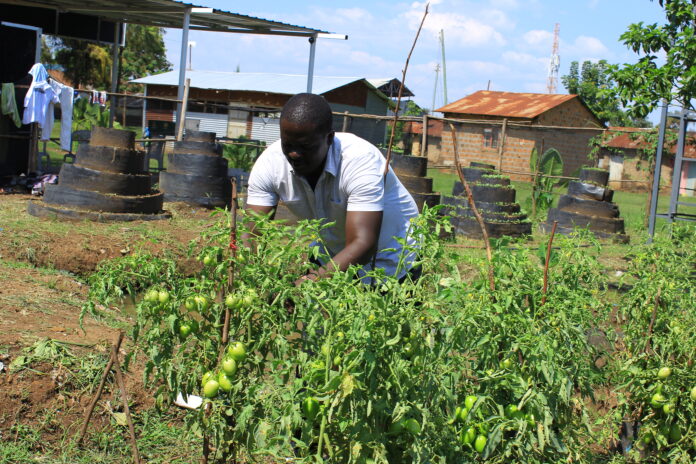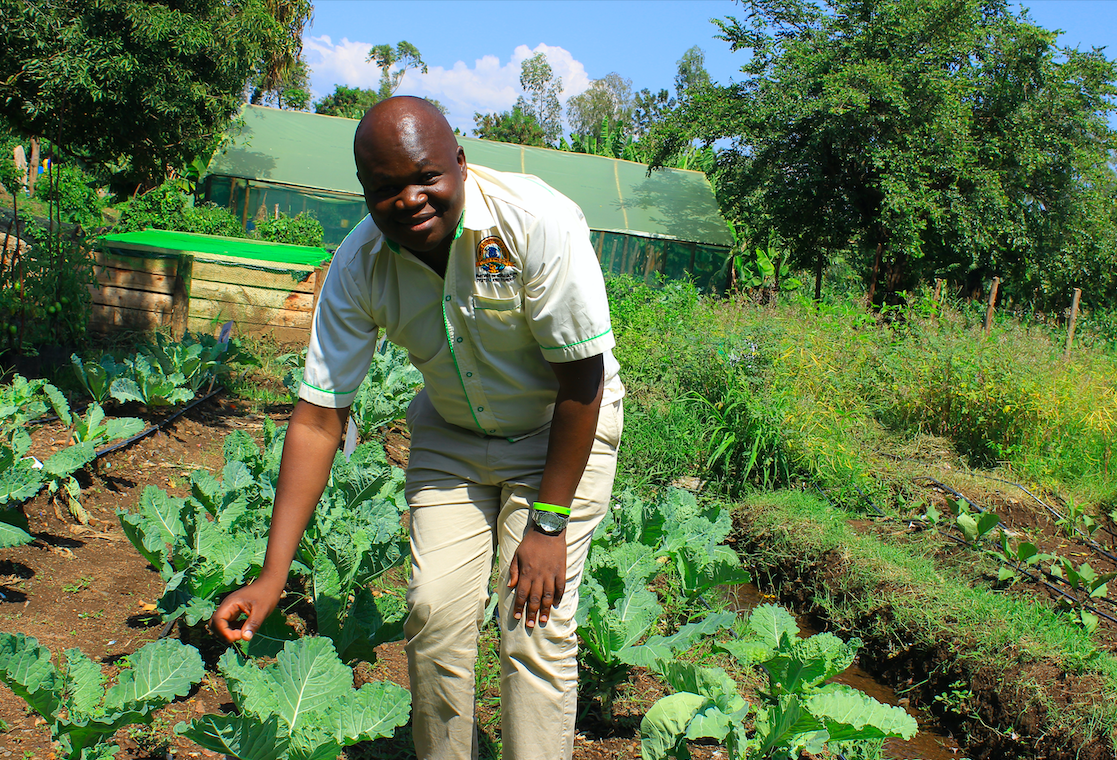
|
Getting your Trinity Audio player ready...
|
Kisumu, Kenya: In the expansive Nyalenda slums of Kisumu, a youth-led transformative agricultural project is shaping and creating new opportunities for youths in agriculture. Through the Kisumu Young Agropreneurs (KIYA) project, many young farmers are gaining skills and venturing into agri-businesses.
The project implemented by GIZ’s “Agri-Jobs 4 Youth” runs 2020-2025, through KIYA and has trained 3,000 young farmers aged 18-35 years in the agriculture and food sector. Out of the 3,000 trained, 2600 have been able to start their own ventures.
Lilian Chepng’etich is one of the beneficiaries who has benefited from the project. “I saw my friends benefit from KIYA, and I decided to join. I was mentored, and trained, and now I’m a trainer of trainers (TOT), working with 70 percent of women. KIYA has opened doors for me,” says Kipng’etich.
Through KIYA, Kipng’etich has also partnered with other organizations like Mastercard, who have helped her to build a poultry house for 200 birds. Kiya also links her to a ready market for her farm produce that consists of tomatoes, kales, cassava, and poultry. “Through KIYA, finding markets for my products has become easier,” she adds.
Kipng’etich also practices Black Soldier Fly farming (BSF), an eco-friendly and innovative approach that is commonly used in sustainable agriculture and waste management.

Stephen Onyango, a value chain leader and mentor with KIYA, also shares how the project has been able to address farming gaps in the community. “Before the projects started, not many youths were in Agriculture, but now, we have seen many more joining,” says Onyango.
Roy Odawa, KIYA’s team leader, shares the team’s impact. “We have trained 3,000 young farmers, and 2,300 have launched their own agribusiness ventures. Around 60% have seen their incomes rise, creating job opportunities for others in the community,” he said.
He further notes that they focus on agroecology that utilizes the available methods of pest control, “We ensure that our food production is safe, affordable, and sustainable.”
Involving School Children
Further, the team is in the process of rolling out the same initiative in the 8 public primary schools around Nyalenda to teach young children the principles of food production and security.
“We have seen a gap, being that we are stationed in a slum area, we have been concentrating on the youth but we realized that we have very many children who don’t understand agriculture,” added Odawa.
“Starting in January with support from the African Population and Health Research Center (APHRC), we will establish school farms in Nyalenda’s 8 public primary schools,” says Odawa. “These farms will not only serve as training grounds but also provide food subsidies to the schools.”
“We have brought teachers on board, by training them, we have trained 8 public primary schools in more than five value chains, African little vegetables, poultry, tomato, cassava, aquaculture, and other climate action mitigation issues like BSF,” adds Owino
KIYA promotes organic farming methods, using natural resources like Tithonia and BSF frass fertilizer for pest control and soil enrichment. The project covers diverse value chains, including indigenous vegetables, poultry, tomatoes, cassava, and aquaculture.
“We use Tithonia and Frass fertilizer from BSF to manage pests, we work closely with GIZ to ensure that we give the young farmers the skills required and get sustainability, the young farmers are encouraged to start their own ventures,” Odawa adds.
Daniel Owino, the liaison officer between the county government of Kisumu and GIZ adds that the impact is tangible. “Kisumu County’s food imports have dropped significantly from 90% to less than 50%,” he explains, “When we started developing the Kisumu Agropreneurs Strategy, unemployment among youth aged 18-35 was at 49.5%. Now, with Sh 50 million set to be injected through local banks, more youth will access resources to invest in agribusiness.”
KIYA’s goal is to make agriculture appealing to the youth, challenging the notion that farming is only for older generations. “As young people continue to gain skills, mentorship, and market linkages, they are becoming role models for others and inspiring them to join the agricultural movement,” adds Owino.
According to Owino, the project has helped the youths to gain skills, market their products, and carry out advocacy. “Most of these young farmers do not own land, but through GIZ, we have been able to lease land that is helping them carry out agriculture,” he adds.
Before the youths were trained not many were in agriculture, a youth will be confused when they see others on the farm. “Through the skills, they have become role models to others,” adds Owino.
“We are looking at it as a sustainable project, we are going to pump Sh 50 million through a local bank to allow the youth to venture into agribusiness, and we will continue to train the youths through KIYA,” reiterates Owino. “We are doing this so that they can have the capacity to move beyond the project.”













